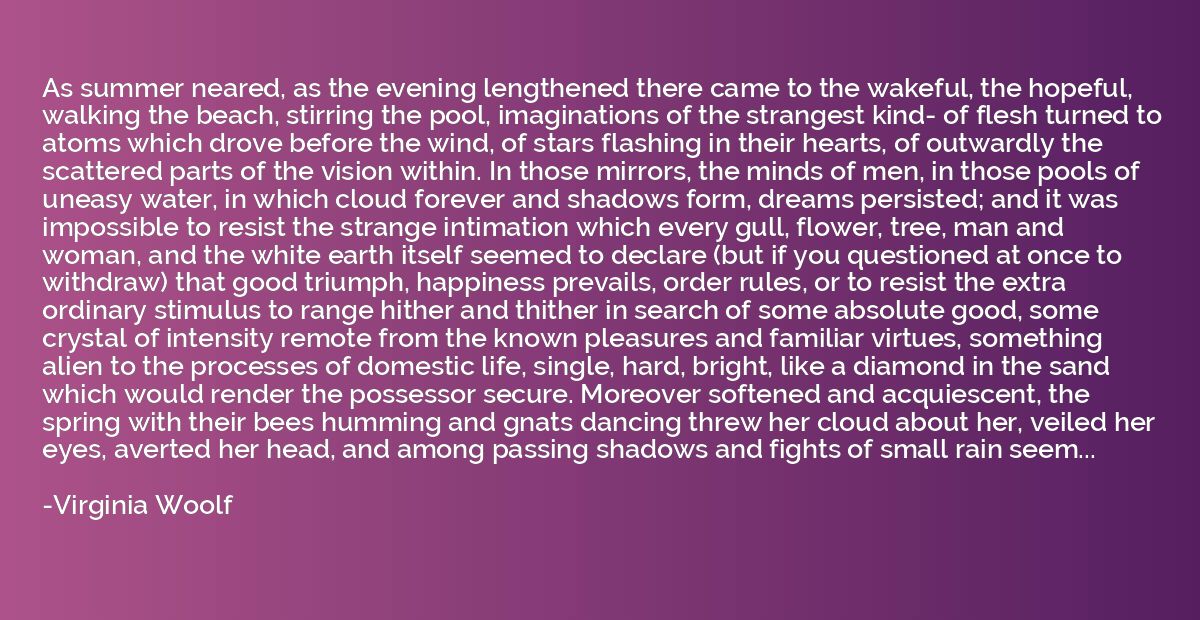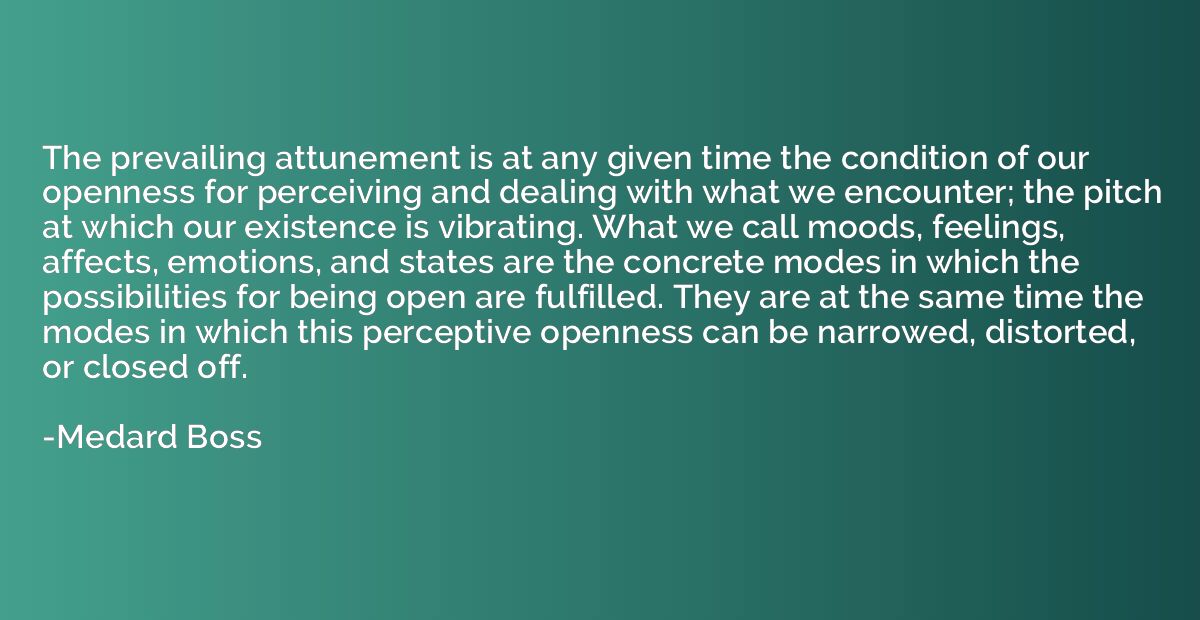Quote by Virginia Woolf
As summer neared, as the evening lengthened there came to the wakeful, the hopeful, walking the beach, stirring the pool, imaginations of the strangest kind- of flesh turned to atoms which drove before the wind, of stars flashing in their hearts, of outwardly the scattered parts of the vision within. In those mirrors, the minds of men, in those pools of uneasy water, in which cloud forever and shadows form, dreams persisted; and it was impossible to resist the strange intimation which every gull, flower, tree, man and woman, and the white earth itself seemed to declare (but if you questioned at once to withdraw) that good triumph, happiness prevails, order rules, or to resist the extra ordinary stimulus to range hither and thither in search of some absolute good, some crystal of intensity remote from the known pleasures and familiar virtues, something alien to the processes of domestic life, single, hard, bright, like a diamond in the sand which would render the possessor secure. Moreover softened and acquiescent, the spring with their bees humming and gnats dancing threw her cloud about her, veiled her eyes, averted her head, and among passing shadows and fights of small rain seemed to have taken upon her knowledge of the sorrows of mankind.

Summary
This quote from Virginia Woolf's novel "To the Lighthouse" describes the feelings and thoughts that emerge during the approaching summer season. It explains how the long evenings and walks along the beach stimulate the imagination, leading to strange and fantastical visions and ideas. These imaginings create a sense of hopefulness, believing in the triumph of goodness and happiness, even though it may seem fleeting and elusive. The passage also suggests a longing for something beyond the ordinary and familiar, a desire to find something intense and secure, like a precious diamond hidden in the sand. Amidst this atmospheric backdrop, the season of spring is portrayed as both accepting and empathetic towards the pain and sorrow of humanity.














